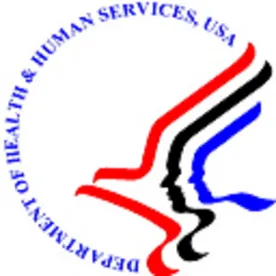On Nov. 20, 2020, the Department of Health and Human Services (HHS) Office of Inspector General (OIG) and the Centers for Medicare and Medicaid Services (CMS) issued two final rules, which implement changes to the Physician-Self Referral Law (Stark Law) and the Anti-Kickback Statue (AKS) regulations. The proposed rules were released in October of 2019. While many anticipated the final rules would be issued in August of 2020, CMS announced a delay to the publication of the final Stark Law rule, stating it would not be released until August of 2021 due to a need to work through “the complexity of the issues raised by the comments received.”[1] The early release of the final AKS and Stark Law rules came unexpectedly but marks a welcomed end to the extended wait for these long-anticipated rules.
The accelerated release of the final Stark Law and AKS rules in 2020 rather than 2021 came as a result of HHS’s launch of the “Regulatory Sprint to Coordinated Care.” The Regulatory Sprint to Coordinated Care “aims to remove potential regulatory barriers to care coordination and value-based care” by encouraging and making improvements in four key areas: (a) a patient’s ability to understand treatment plans and make empowered decisions; (b) coordination among providers along the patient’s full care journey; (c) incentives for providers to coordinate, collaborate, and provide patients with tools to be more involved; and (d) information-sharing among providers, facilities, and other stakeholders in a manner that facilitates efficient care while preserving and protecting patient access to data.
CMS’s transition to a value-based reimbursement model from a volume-based model necessitated these updates to the Stark Law and the AKS, both of which were enacted at a time when Medicare payment was exclusively based on volume rather than value. The final rules also seek to reduce the administrative burdens imposed on providers, thus allowing providers the flexibility needed to foster “beneficial innovation and better coordinated patient care with necessary safeguards to protect patients and federal health care programs.” CMS Administrator Seema Verma, in a statement announcing CMS’s promulgation of its final rule, said, “That sound you hear is the mingled cheers and exclamations of relief from doctors and other health care professionals across the county as we lift the weight of our punishing bureaucracy from their backs.”[2]
CMS’s final Stark Law rule includes the following significant modifications:
-
New exceptions that account for alternative payment models and care coordination arrangements;
-
A new exception to protect entities that donate cybersecurity technology and services to physicians; and
-
Guidance and clarification on key requirements to Stark Law exceptions, such as commercial reasonableness, fair market value, and compensation that “takes into account” the volume or value of referrals and is “set in advance.”
OIG’s final rule includes the following significant changes to the AKS regulations:
-
Addition of three new safe harbors for value-based arrangements;
-
Addition of one new safe harbor for patient engagement and support furnished to participants in value-based arrangements;
-
Addition of a new safe harbor for CMS-sponsored model arrangements and patient incentives;
-
Addition of a new safe harbor for remuneration in the form of cybersecurity technology and services;
-
Modifications to the electronic health records items and services safe harbor;
-
Modifications to the personal services and management contracts safe harbor;
-
Addition of a new safe harbor for outcomes-based payments;
-
Modifications to the safe harbor for warranties;
-
Modifications to the safe harbor for local transportation; and
-
Codification of the statutory exception to the definition of “remuneration” related to ACO Beneficiary Incentive Programs for the Medicare Shared Savings Program.
The OIG final rule also modifies the beneficiary inducement provisions of the Civil Monetary Penalty regulations by incorporating a new statutory exception to the prohibition on beneficiary inducements for “telehealth technologies” furnished to certain in-home dialysis patients
[1] See https://s3.amazonaws.com/public-inspection.federalregister.gov/2020-18867.pdf






 />i
/>i

